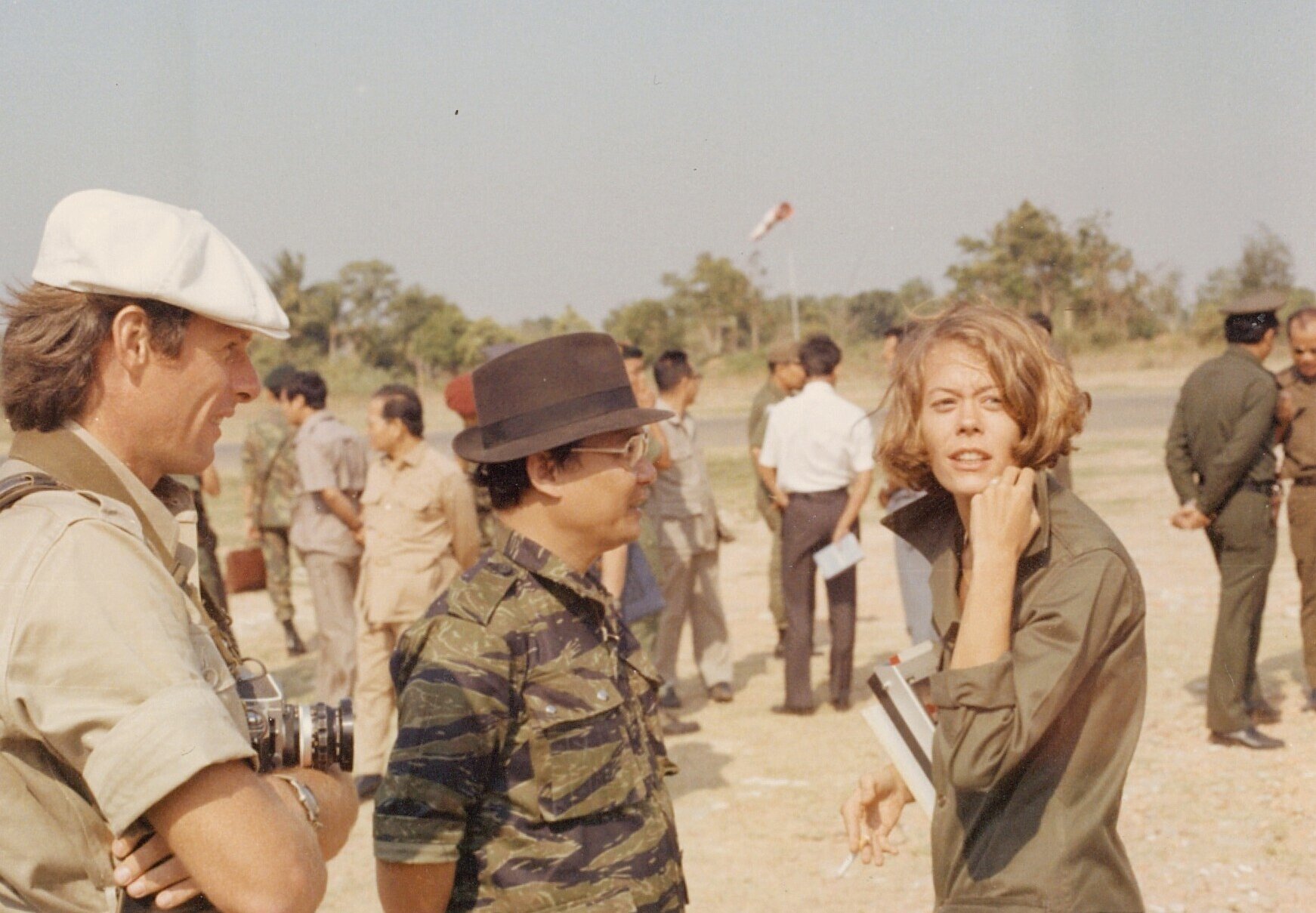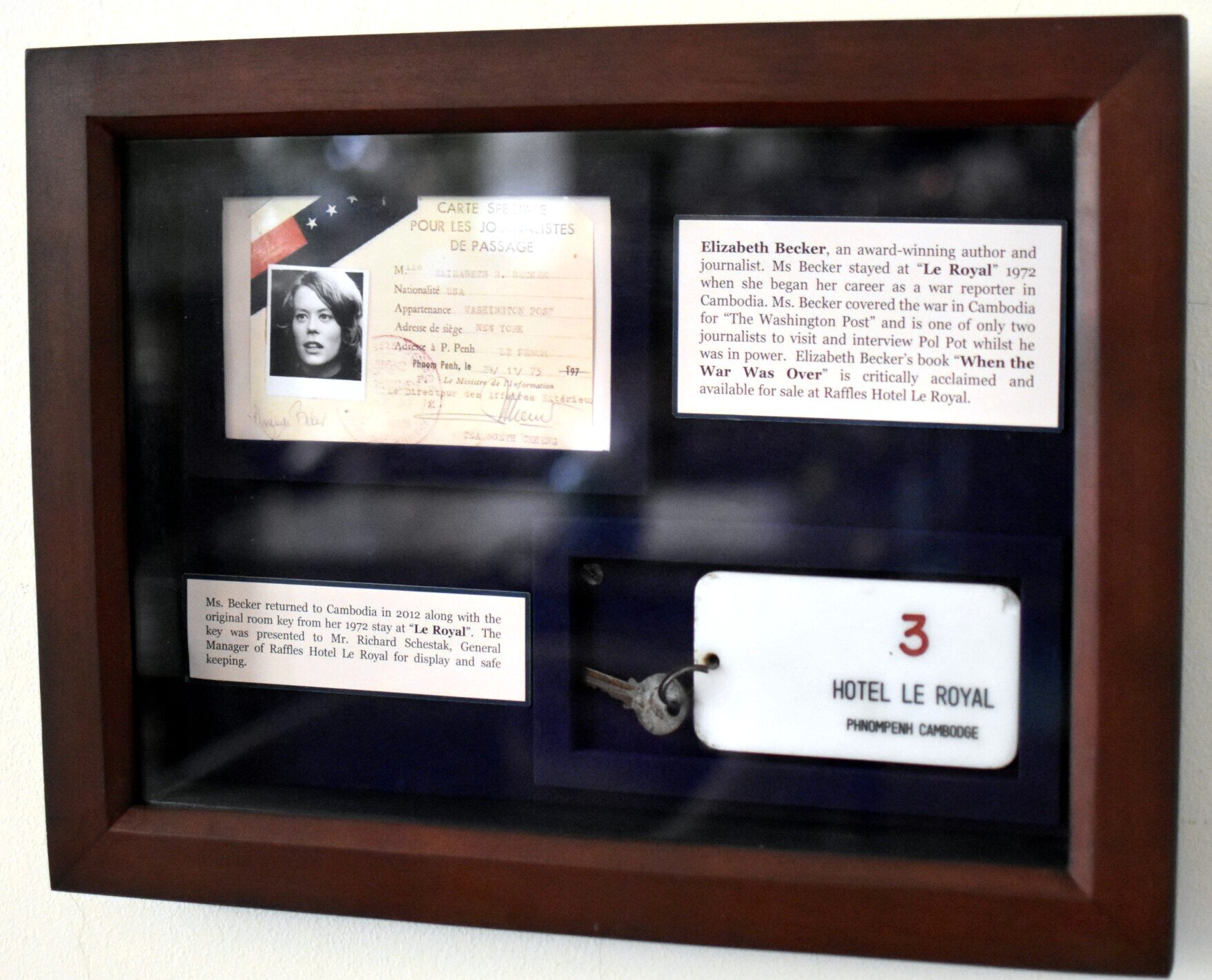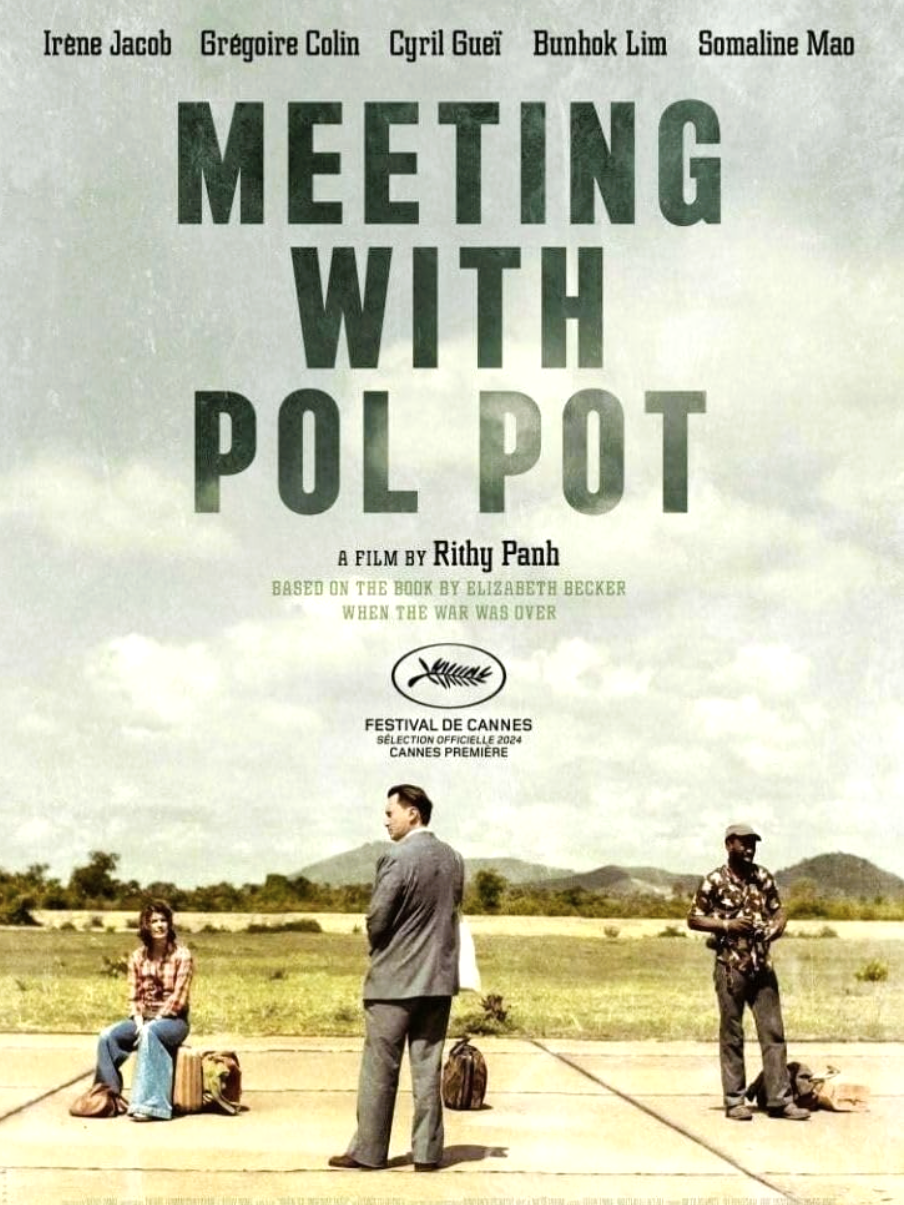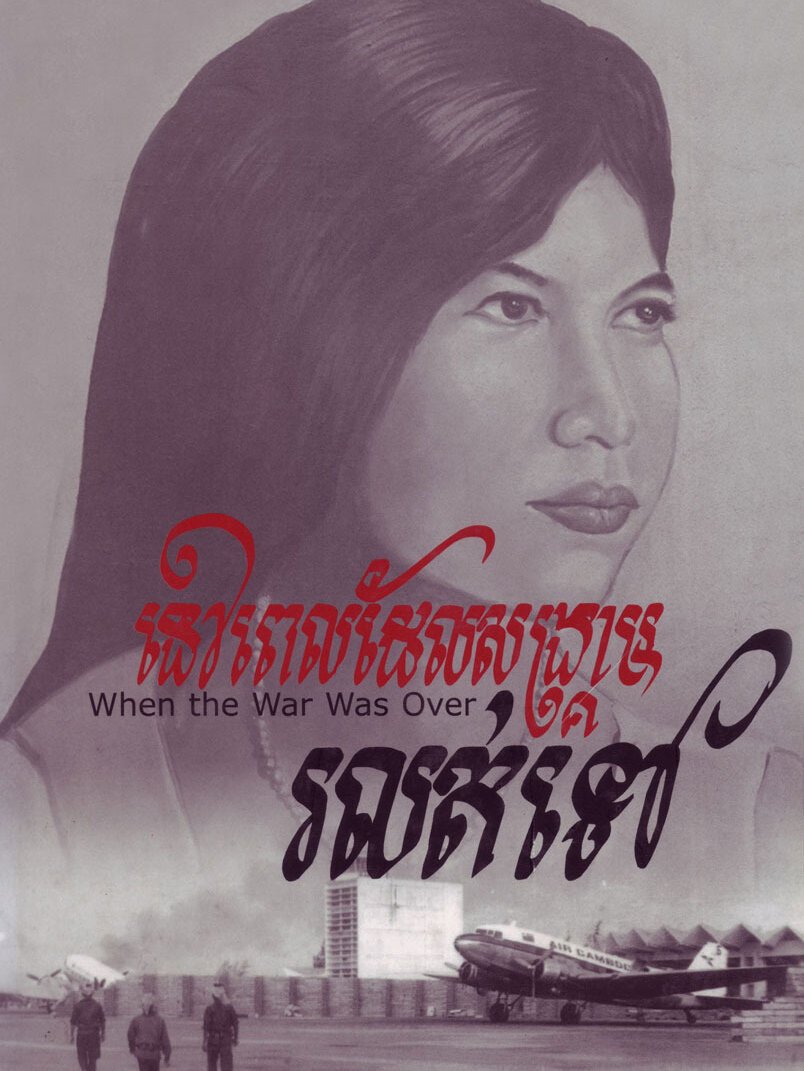Elizabeth Becker
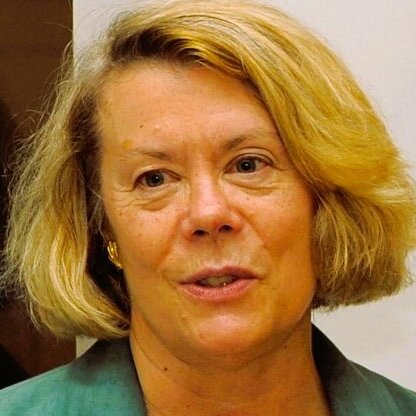
Elizabeth Becker (b. 28 Oct. 1947) is an American author, a former journalist who has covered international affairs since 1973 when she became a stringer for the Far Eastern Economic Review and later The Washington Post and The New York Times in Phnom Penh as one of the few women reporters in the war-torn region. Five years later, she was part of the only group of Western journalists and writers (with Malcolm Caldwell and Richard Dudman) to visit Cambodia since the Khmer Rouge had taken over the country in April 1975, shedding light on the secretive régime led by Pol Pot, whom they interviewed on 22 December 1978.
After graduating in South Asian Studies from the University of Washington, she was a fellow at Harvard’s Shorenstein Center and studied languages at the Kendriya Hindi Sansthan in Agra, India. Unwilling to pursue an academic career, she joined her friend, seasoned journalist Sylvana Foa, in Phnom Penh, becoming the only female foreign correspondent in the country after Foa’s departure and, as she later wrote in When The War Was Over (1986), earning
the dubious distinction of being the only journalist to have reported from that country under every one of its governments: Lon Nol’s Khmer Republic, Pol Pot’s Democratic Kampuchea, Heng Samrin and Hun Sen’s People’s Republic of Kampuchea, and Norodom Ranariddh and Hun Sen’s Kingdom of Cambodia.
1) Elizabeth Becker with Long Boret in 1974 (author’s collection). 2) A display commemorating her stay at The Royal (now Raffles Hotel), Phnom Penh. [photo by Phallegra Mendelson/Globe].
When the Khmer Rouge stormed Phnom Penh in April 1974, Elizabeth Becker had to report on Cambodia from abroad, coming back in December 1978, a few months before the Vietnamese intervention to oust Pol Pot’s régime. In the following years, she was based in Paris, following the negotiations that led to the 23 October 1991 Paris Peace Agreement.
At the turn of the century, Elizabeth Becker kept reporting for the New York Times and the National Public Radio (NPR), winning distinctions for her coverage of the Rwanda genocide and South Africa’s first democratic election in April 1994. She was an expert witness at the Khmer Rouge genocide tribunal (Extraordinary Chambers in the Courts of Cambodia), taking frequent trips to the Kingdom. She was involved in several humanitarian initiatives as a member of the board of Oxfam America Advocacy Fund.
In 2021, she revisited the Vietnam War years with You Don’t Belong Here: How Three Women Rewrote the Story of War, the interwoven cameo of three women reporters: Kate Webb, who at some point was thought to have perished in an ambushed on Cambodia’s National Highway 5, Catherine Leroy, a fearless photoreporter who was the first to photograph North Vietnamese soldiers in the Battle of Hue during the January-March 1968 Tết Offensive, and Frances FitzGerald, born into the American social elite but brought by her intellectual rigor to conclude in her grounbreaking articles and book that America would lose the war. ,
1) Rendez-vous Avec Pol Pot [Meeting with Pol Pot], Rithy Panh’s movie based on When the War Was Over, premiered at the 2024 Cannes Film Festival. 2) Book cover of នៅពេលដែលសង្រ្គាមរលត់ទៅ : កម្ពុជា និងបដិវត្តន៍ខ្មែរក្រហម, the Khmer translation by Sokha Irene (2005).
Rendez-vous Avec Pol Pot (Meeting with Pol Pot) by Cambodian film director Rithy Panh ប៉ាន់ រិទ្ធី (b. 18 April 1964) premiered at Cannes Film Festival on 16 May 2024 . Based on Elizabeth Becker’s (and her colleagues’) 1978 encounter with Pol Pot, the drama film starring Irène Jacob, Grégoire Colin and Cyril Gueï debuted in the US at Lincoln Center on 13 June 2025, and won the Grand Jury Prize at Lisbon Film Festival that year.
Publications
- When the War Was Over: Cambodia and the Khmer Rouge Revolution. New York: Simon & Schuster. 1986, 635 p. ISBN 0671417878. | Kindle ed. | FR: Les Larmes du Cambodge, l’histoire d’un auto-génocide, tr. by Jacques Martinache, Paris, Presses de la Cité, 1988, 458 p. ISBN 2−258−02162−6. | KH: នៅពេលដែលសង្រ្គាមរលត់ទៅ : កម្ពុជា និងបដិវត្តន៍ខ្មែរក្រហម [When the war was over : Cambodia and the Khmer Rouge Revolution], tr. by Sokha Irene, Phnom Penh, Documentation Center of Cambodia (DC-CAM), 2005.
- America’s Vietnam War: A Narrative History. New York: Clarion Books. 1992. ISBN 0−395−59094−9.
- Overbooked: The Exploding Business of Travel and Tourism. New York: Simon & Schuster. 2013. ISBN 9781439160992.
- Tourist Trap: The Risks and Rewards of the Global Travel Industry, World Politics Review Features, Kindle edition, 2015, 17 p.
- You Don’t Belong Here: How Three Women Rewrote the Story of War, PublicAffairs, 2021, 320 p. ISBN 978 – 1541768208.
- “I Don’t Want My Role Models Erased: This is how women who covered Vietnam were marginalized in the war’s history,” The New York Times, 20 March 2021.
References
- Elizabeth Becker’s website.
- Elizabeth Becker Cambodia and Khmer Rouge Collection, 1970 – 1988, University of Washington Southeast Asia Library, Seattle, WA, USA.

